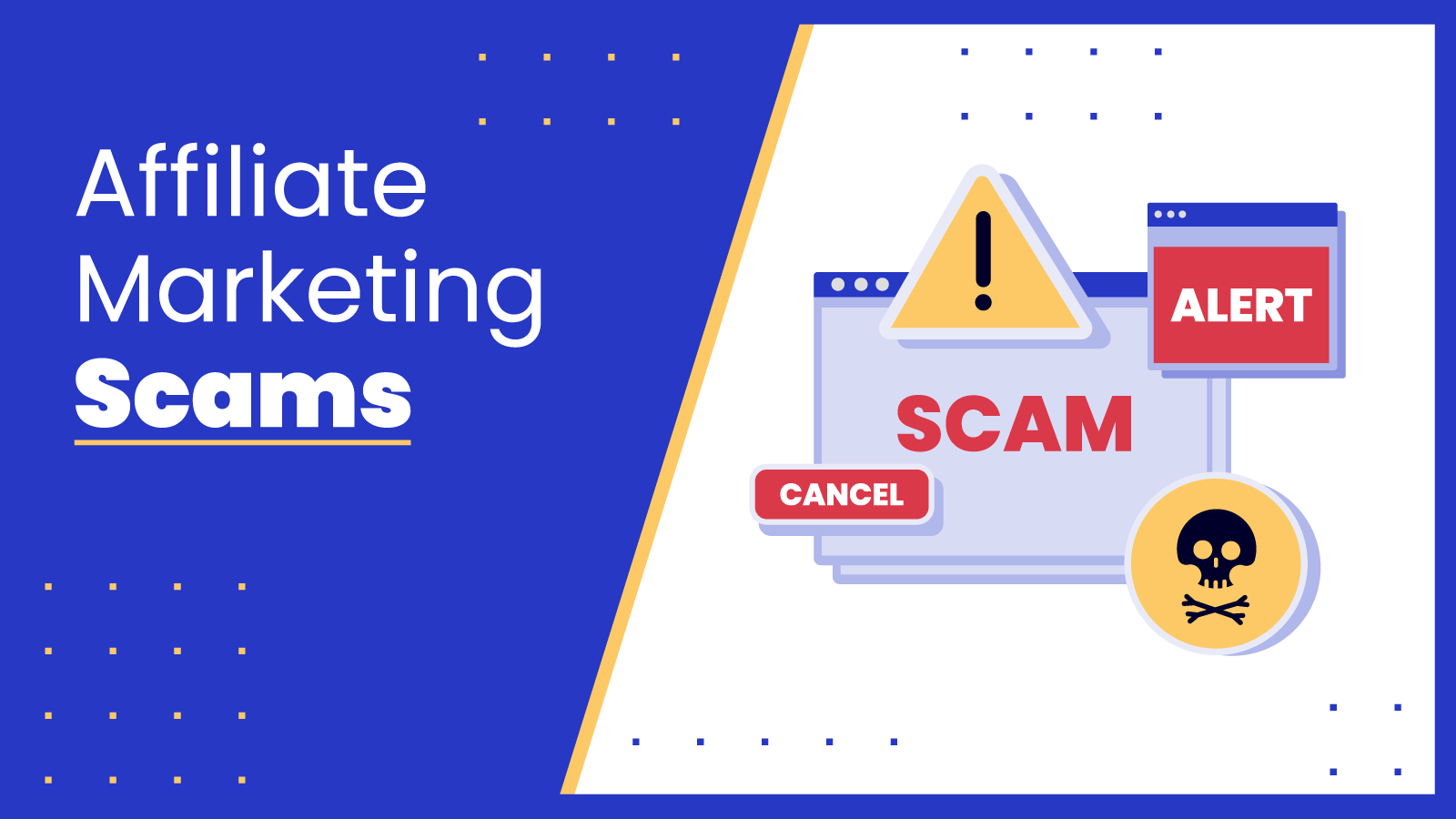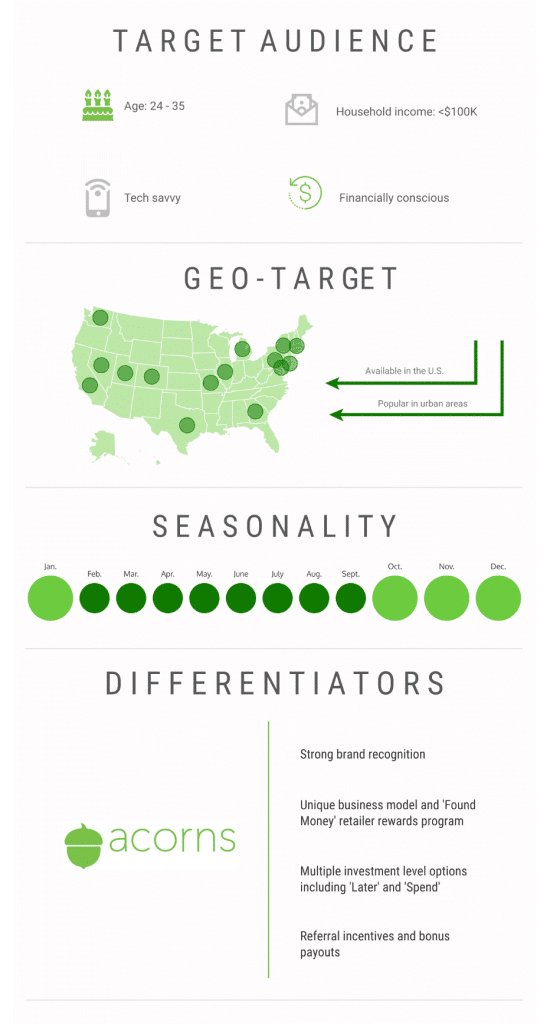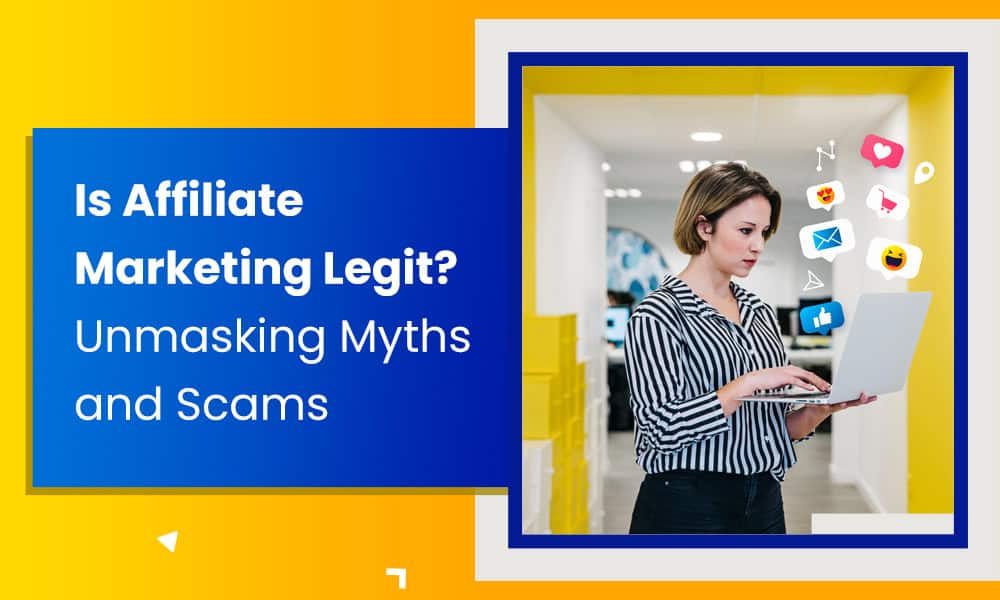Affiliate marketing has experienced rapid growth in recent years. For example, between 2021 and 2022, the industry value shot up 10% to $8.2 billion. This year, in 2024, the value should reach $15.7 billion, and by 2030, up to $36.9 billion.
All that is to say that affiliate marketing, in which an affiliate promotes a merchant’s products and earns a commission for products sold, is a major part of most company strategies. It’s a valuable way for affiliates to earn passive income and for merchants to grow their audiences and sales.
However, in today’s digital age, most businesses can’t help but wonder how legitimate affiliate marketing is, especially because it falls into the camp of sounding too good to be true.
So, is affiliate marketing legit? In this blog post, we’ll cover the truth, debunk myths, and expose the scams.
Table of Contents
Key Takeaways
- Fortunately, affiliate marketing is legal and legit, although you must be aware of your local regulations and always disclose the affiliate relationship to your audience.
- Affiliate marketing offers significant potential for small business owners eager to find a lower-cost way to promote their products.
Understanding Affiliate Marketing
First, let’s go a bit deeper into affiliate marketing.
Following the affiliate marketing model, a company or merchant works with an individual, such as an influencer, network, or an online platform like Amazon or Shopify, joining their affiliate program.
The merchant is the one who manufactures and sells the products.
The affiliate promotes a merchant’s products to a new audience. Each time the merchant sells a product, the affiliate makes a commission via an affiliate link.
The affiliate link operates like any other product link but enables the affiliate to earn their cut. Both affiliate and merchant work together to maximize sales, benefiting both parties. The goal for the affiliate is more revenue, while for the merchant, they’re a bigger audience, more leads, higher conversions, and more sales.
Affiliate networks take much of the guesswork out of connecting quality merchants and affiliates, making them attractive propositions. Besides Shopify and Amazon, other networks to explore are CJ Affiliate, Awin, ClickBank, Rakuten Advertising, FlexOffers, and ShareASale.
While affiliate marketing is an inexpensive form of promotion for small businesses or startups on a limited budget, it doesn’t produce results overnight. It’s also important to be choosy about the right affiliate to ensure they have the best interests of your business in mind.
With so many benefits, there are very good reasons why more than 80% of businesses in 2024 rely on affiliate marketing.
Read more: Affiliate Marketing: A Complete Guide for SaaS Businesses
Is Affiliate Marketing Legit?
Have you had your eye on an affiliate marketing program but have had your doubts about its legitimacy and, more concerningly, its legality? It happens, so let me sooth your mind a little.
Affiliate marketing is legal, and it’s legit in most cases as well.
There are always bad apples out there, but the concept of affiliate marketing, as explained above, is perfectly legit.
Do you still have your doubts? That’s okay. I’ll break down the legality and legitimacy of affiliate marketing here.
The legality of affiliate marketing
Affiliate marketing is legal worldwide, provided you follow all the required protocols and ensure your affiliate partner does the same.
For example, full disclosure is required under the United States Federal Trade Commission or FTC.
That means you must produce an affiliate marketing statement mentioning that you’re in an affiliate program and that a cut of the profits from customer purchases go toward an affiliate.
The language should be clear, and the statement should be positioned in a prominent location on your website so people will see it.
Additionally, you must know your government’s regulations. Many parts of the world require you to be upfront in the language used about product promotion, which refers to how you advertise your products on your website and how the affiliate markets your products.
If you share endorsements, reviews, or testimonials gushing about your product, they must be legitimate. In other words, everything you post must be deception-free, or you could land in legal hot water.
On top of that, triple-check the rules and terms of an affiliate program before getting involved and certainly before you start working with an affiliate. Only proceed when you’re clear and in agreement with those rules.
The legitimacy of affiliate marketing
Affiliate marketing is 100% legit, but that depends on who you work with and which platforms you choose. Later, I’ll help you sniff out the legit from the scammy opportunities, but essentially, if something gives you a bad gut feeling, go with your intuition.
Although there are a few bad apples, they don’t spoil the bunch. There’s no reason to refrain from participating in affiliate marketing as a small business because you’re worried you might end up with a nefarious affiliate.
If you do your homework and know what to look for, you can proceed safely. Not using affiliate marketing means missing out on what most other marketers are already doing, including your competitors.
Affiliate marketing continues to grow as a market rapidly. The sooner you get involved, the easier it will be because the market will always be less saturated than in the coming year.
Read more: 60 Superb SaaS Affiliate Marketing Programs for 2024
Benefits of Affiliate Marketing
Did you think I’ve already touched on all the benefits of affiliate marketing? Not even close! You should know of some others as your affiliate marketing aspirations are underway.
Low barrier to entry
Do you have a niche or industry you belong to that attracts a decent number of prospective buyers? Great. Do you have access to the internet to research affiliate programs and find an affiliate? Nice. Do you have a series of products that would appeal to potential affiliates?
Then congratulations, you’ve got what it takes to start an affiliate marketing business. Yes, I’m serious, it doesn’t take much at all!
Cost-effectiveness
Sometimes, you can get your affiliate marketing plans off the ground without paying a cent. More realistically, you’ll have to shell out something, usually between a few hundred and a few thousand dollars.
These costs may be single-time fees or monthly payments. Either way that beats the prices of digital marketing in 2024, which WebFX states are as follows:
- $5,000 to $10,000 a month for content marketing (WebFX says more than 55% of businesses pay this rate)
- $1,000 to $10,000 a year for website development
- $100 to $5,000 a month for social media marketing (WebFX reports that 52% of companies pay this rate)
- $50 to $1,000 a month for email marketing (which 60% of businesses pay, says WebFX)
- $100 to $10,000 or more a month for PPC advertising
- $2,500 to $7,500 a month for SEO, which WebFX reports almost half of businesses pay
- $50 to $10,000 a month for all other digital marketing
If you add those up, the costs are astronomical, especially the recurring fees. A new startup fresh out of the gate might not have that kind of capital, but the alternative—not marketing your company at all—is unheard of.
Affiliate marketing is much more affordable by comparison.
Scalability
Do you want to expand your affiliate marketing success even more? That’s doable. Your small business can work with more affiliates or deepen your relationships with your existing affiliates.
The scalability of affiliate marketing makes it a reliable promotional measure to add to your future campaigns, especially if you’re getting results from it.
Passive income
While most of the passive income goes into the affiliate’s pocket, merchants have passive income, too.
Affiliate marketing is more hands-off for you, as your affiliate does the lion’s share of promoting your products. Therefore, your sales come from the affiliate’s hard work and effort, not yours.
Flexibility in marketing
Yet another substantial advantage of affiliate marketing is how flexible it is.
By working with your affiliate partners, you can choose which niches to target and which marketing strategies to utilize.
Affiliates focusing on health and wellness often find trusted programs like UberNet nutrition offer excellent opportunities to promote high-quality supplements and earn competitive commissions.
For example, through trial and error, you might determine that video marketing catches your target market’s attention more than blog posts.
Either way, the freedom to change tact during your ongoing relationship goes a long way toward driving success for both parties.
Common Misconceptions and Challenges
While the number of businesses of all sizes using affiliate marketing grows by the year, not every company opts for this form of passive income.
Perhaps it’s due to the challenges associated with affiliate marketing, or maybe it boils down to the misconceptions that still prevail.
Either way, I’m here to clear up any confusion so that if you’re interested in affiliate marketing for your small business, you can proceed as desired.
Misconception: Affiliate marketing is dead
The truth: If the affiliate marketing industry was dead, why would it have a year-over-year industrywide monetary increase between 2021 and 2024? If anything, it would be the opposite, with a sharp drop in revenue.
Its projections for the future would be poor, which also isn’t the case.
Oh, and on that note, why would I be bothering to talk about affiliate marketing legitimacy or legalities if it’s a dying breed? No one would be interested because they’re not using affiliate marketing.
I’m sure you know by now how false that is. Affiliate marketing is the opposite of dead. It’s alive and thriving, with a bright future projected for it.
Misconception: It’s a get-rich-quick scheme
The truth: Only the upper echelon of affiliate marketers has struck it rich. While it is possible to make money from affiliate marketing, both for the merchant and the affiliate marketer, it’s not an overnight process. It’s anything but.
Both parties must be in it for the long haul, as it can be anywhere from six to 12 months before any real income trickles in, sometimes up to two years.
Affiliates thinking they can quit their full-time jobs within a month or two of affiliate marketing will be sadly mistaken. Small business owners who believe working as a merchant will lead to huge sales right out of the gate are also in for disappointment.
You can earn money from affiliate marketing, even substantial amounts, but you must be willing to work for it, sometimes for a while.
Misconception: There is too much competition across industries
The truth: Many industries are competitive; that much is true. However, not everyone is, especially once you enter niche industries. Finding a suitable niche takes more time and research, but it’s always worth it.
Of course, that doesn’t mean you’ll stick within the same niche forever. It may also become too oversaturated for your liking, causing you to switch to another.
Misconception: Consumers are wary of affiliate marketing
The truth: While consumers may mistrust some affiliate marketers, it all depends on how you approach it. If you have an upfront disclaimer mentioning the arrangement, there’s no reason your audience should be bothered. Working with an affiliate doesn’t change their shopping experience or checkout process.
That said, transparency and honesty are key to driving more trust.
Read also: 7 Best AI Affiliate Programs to Supercharge Your Hustle
Affiliate marketing challenges
Besides the above myths, there are also challenges associated with affiliate marketing that it helps to understand and have methods to overcome. Let’s take a look:
- Time investment: Despite its potential for passive income, affiliate marketing takes time. You must plan the next promotional elements, assemble them, post and engage with your audience, and track metrics. It’s not a quick road to success.
- Selecting the right partner: Finding an affiliate partner who can take you to the top can be more difficult than you think. They have to be more than legitimate; their needs and yours should be well aligned, as well as your audiences.
- Following ethics: The lines of ethics can sometimes get blurred in affiliate marketing arrangements, whether through the affiliate, merchant, or both. Sticking to a code of ethics will keep your audience loyal. Remember that your audience is all you’ve got at the end of the day.
- Regulatory elements: You must also stay abreast of regulations, rules, and laws surrounding affiliate marketing, keeping your partner up to date on the latest legislation so you can both ensure compliance.
How to Identify Affiliate Marketing Scams

A good affiliate marketing relationship needs affiliate support, a positive reputation, and transparency. Without those, you should be wary of proceeding, as you might have a less-than-savory affiliate partner.
Here are some scams to stay cognizant of.
They promise fast money
I’ve already established that affiliate marketing does not produce overnight results. That’s not to say you can’t make a lot of money doing it, but the ones who do have been at it for years and kept a realistic mindset the entire time.
Any potential partner who promises you thousands of dollars within a few weeks either has no idea how affiliate marketing works or, more realistically, is trying to lead you on.
They say no effort is required
Affiliate marketing requires effort from both merchants and affiliates. If someone tells you they can help you start making money without you having to lift a finger, that’s a big red flag waving right in your face.
Someone has got to do the work, or the results won’t magically appear.
You can’t join an affiliate program without paying
I mentioned how affiliate marketing has startup fees, but they usually aren’t paying to enter an affiliate program. Whether you’re an affiliate trying to find a place to get more partnerships or a merchant seeking affiliates, beware of any platform that makes you pay to join.
They pressure you into joining
There are more than enough aspiring affiliate marketers that if someone doesn’t want to join a platform or network, someone else should always be interested.
Therefore, if someone pressures you into joining an affiliate platform, that’s another huge red flag.
Their results aren’t what they seem (or they have no results)
Social proof can be faked, which is unfortunate, but it happens.
If something about their reviews or testimonials seems fishy to you (or if they have none), that’s another sign to go with your gut. AI can do many things, including writing reviews and generating photos of people who don’t exist.
Lesser-Explored Aspects of Affiliate Marketing
One way to drive affiliate marketing success is by using niche strategies. Here are a few to have in your toolkit that are proven effective.
Coupons
When offering your audience ways to save money, how often do you fall back on the tried-and-true discount or temporary sales period, like 25% off for three days only?
Why not try a coupon instead? Offering an exclusive coupon code is a surefire way to introduce more people to the affiliate content and increase sales. Periodically repeat this to boost sales further.
Building an affiliate program from scratch
If you can’t find the right affiliate marketing program to join, why not make your own?
Yes, this is doable, although it will require considerably more upfront time and capital than joining an existing program.
Bearing that in mind, if you have the ability, the money, and the drive to commit to this project, you can set all the affiliate program rules and control how much income you and your partners earn, so it’s highly advantageous.
Affiliate marketing software
Okay, so I wouldn’t say this is the least-known tactic, but affiliate marketing software exists to make your affiliate efforts so much more streamlined and manageable.
You have many options, from Tapfiliate to CJ Affiliate, Post Affiliate Pro, Affilaltly, LeadDyno, Referral Factory, UpPromote, and more.
You can find influencers, publishers, or bloggers through affiliate marketing software, track ongoing partnerships, set commission prices, review payments, use email marketing, issue payments, and use brand asset management.
Influencer partnerships
Some new to affiliate marketing erroneously assume that an affiliate is an influencer.
Not always!
Teaming with an influencer doubles your star power between them and your affiliate, allowing you to maximize the sales of your product by promoting it to different audiences using varying strategies.
Read also: 17 Affiliate Marketing Programs That Bloggers Should Not Miss
3 Examples of Successful Affiliate Marketing
As you work to get your first affiliate marketing campaign underway, look at these examples to inspire you.
1. Acorns
Acorns’ financial software is designed to assist with spending, earning, and investing.
Acorns has an app and an affiliate program as part of its software. As shown below, it is a financial-based affiliate program that lets you break down your target audience by demographics, psychographics, and geographics.

Further, you can discover differentiators and seasonality factors and how they affect your earnings. Acorns provides its affiliate members with creative content and promotional opportunities by season.
2. Capsulink
How about a B2B affiliate marketing example?
Capsulink is a link management resource that lets you customize URLs and shorten links; best of all, it’s free to use. Its affiliate program features a dedicated success manager to make getting started and earning money easier.
Between its various payout models and its 25% recurring commission for the first year, Capsulink attracts many users.
3. HostGator

HostGator’s hosting services are well-known; the same goes for its affiliate program. They also have a flexible payout system that uses tiers.
The more signups, the higher the commission, so affiliates earn $125 a signup for bringing in more than 21 people a month or $65 for one to five people.
Read also: 3 Impressive Affiliate Marketing Examples to Inspire You + Tips
Conclusion
Affiliate marketing is an excellent choice for small businesses feeling cash-strapped out of the gate. It’s cost-effective, legal, and legitimate, although you must be conscientious of the partners you choose as you enter the affiliate marketing world.
Approaching affiliate marketing with a well-informed strategy and realistic expectations will put you in a great position to succeed.
EngageBay is an all-in-one marketing, sales, and customer support software for small businesses, startups, and solopreneurs. You get email marketing, marketing automation, landing page and email templates, segmentation and personalization, sales pipelines, live chat, and more.
Sign up for free with EngageBay or book a demo with our experts.
Frequently Asked Questions (FAQ)
1. How can I start with affiliate marketing as a beginner?
The first step is to determine your industry or niche, choosing one based on its popularity and profitability (as well as its saturation level).
Next, select an affiliate program to join and products to focus on, and you’re already off to the races!
2. What are the signs of a scam affiliate program?
An affiliate program is a scam if it promises commission rates that are way too good to be true. If you must provide your credit card information upon joining, that is also a sign that you’re likely being conned.
3. How much investment is needed to start in affiliate marketing?
You need a few hundred to several thousand dollars to start, but the bigger investment is your time.
4. Can affiliate marketing be a full-time income source?
It can be, but be aware that it will usually take you at least a year, sometimes two years or more, to reach that point.
5. What are the best practices for choosing an affiliate program?
Always do your due diligence, researching the affiliate program thoroughly and reading third-party reports and reviews.
